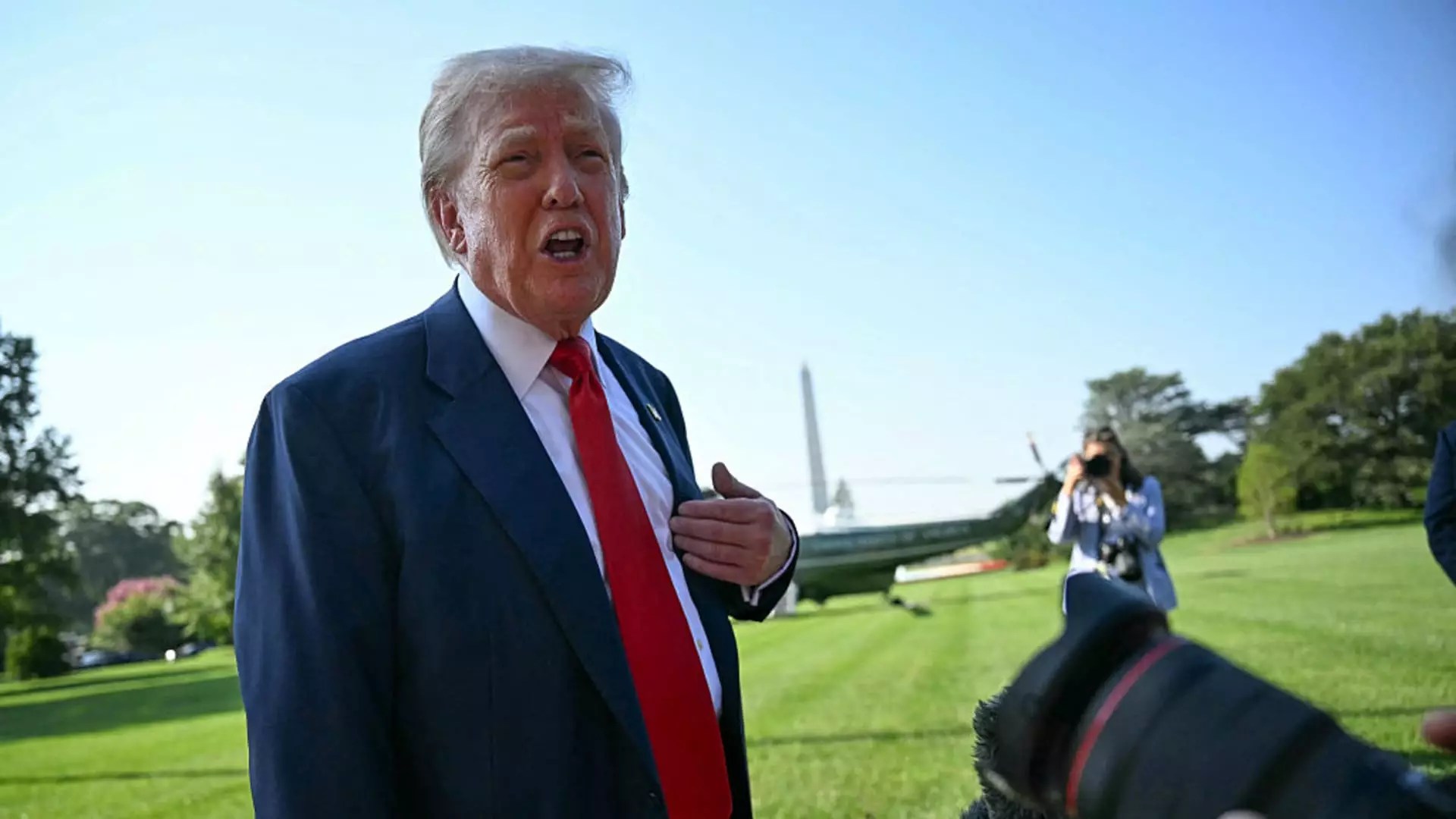In a spectacle that feels more like a carefully choreographed play than a genuine pursuit of justice, the recent comments from former President Donald Trump reveal a troubling tendency among political figures to obfuscate responsibility and shift blame. Trump’s dismissive attitude toward his connections with Jeffrey Epstein underscores a broader pattern: the refusal to confront uncomfortable truths and instead focus on selectively chosen scapegoats. While he denies any direct involvement with Epstein, he points fingers at others—including Bill Clinton and prominent academic figures—indicating a calculated effort to divert attention from potential complicity or at least from the troubling associations that the Epstein scandal exposes. This tactic reveals a fundamental weakness in moral accountability. Instead of fostering transparency, these figures prefer to diminish the significance of allegations by muddying the waters, suggesting that the real focus should be on “others,” thus absolving themselves of responsibility.
The political discourse surrounding Epstein’s sordid crimes is riddled with this kind of victim-blaming and deflection. Trump’s comments, framing the issue as a comparison of who was closer to Epstein, serve to shield him from scrutiny, echoing a persistent tendency in American politics to prioritize self-preservation over justice. It’s a reflection of a system more committed to damage control than actual accountability. The fact that prominent elites, including a former president and a Harvard ex-president, are drawn into this web complicates the narrative, creating an atmosphere where the opacity surrounding their relationships with Epstein fuels suspicion rather than dissipates it.
The Obfuscation of Justice: The Maxwell Case and Its Political Ramifications
Meanwhile, the ongoing legal proceedings involving Ghislaine Maxwell reveal a different facet of this disturbing pattern—one where justice is seemingly manipulated or delayed for political and institutional interests. Maxwell, convicted of facilitating Epstein’s abuse, faces a legal process that is increasingly scrutinized for its transparency and fairness. Her lawyer’s characterization of Maxwell as being unfairly treated over multiple years and her portrayal as a victim of scapegoating underscores a recurring theme in judicial narratives that involve powerful individuals—whether they’re accused of heinous crimes or entangled in shadowy political dealings.
The recent efforts by high-ranking DOJ officials to interview Maxwell intensify this sense of a system attempting to peel back layers of complicity and hidden networks of abuse. The decision by Deputy Attorney General Todd Blanche to pursue these interviews, especially given his prior role as Trump’s criminal defense lawyer, adds a layer of intrigue—they attempt to cloak the process in objectivity while hinting at a deeper motive: uncovering what powerful figures knew and when they knew it. Yet, skepticism remains high, as critics argue that these investigations risk being mere performative acts, designed more for public relations than real justice.
The case’s political implications underscore our society’s reluctance to confront uncomfortable truths about elite complicity in abuse. Maxwell’s portrayal as a scapegoat sidesteps the larger issue: why was such an extensive sex trafficking network able to operate at the highest levels of power for so long? The narrative, increasingly marred by legal machinations and media spectacle, diverts attention from systemic failures and concentrates it on individual scapegoats. This tactic conveniently distracts from the unsettling possibility that the very structures meant to uphold justice could be compromised by political and economic interests.
Is Justice a Genuine Pursuit or a Political Tool?
At its core, the Epstein-Maxwell saga exposes a profound dissonance in the American pursuit of justice. On one hand, there is a façade of relentless investigation, press conferences, and legal proceedings. On the other hand, behind the scenes, there appears to be a tangled web of political allegiances, selective leaks, and strategic silence. The apparent ease with which political figures and justice officials navigate allegations while seemingly avoiding addressing the systemic roots of the problem suggests that justice is often used as a weapon rather than an impartial guiding principle.
The ironies are stark. The very individuals who publicly condemn Maxwell or Epstein often have murky ties or ambiguous relationships with such networks. Trump’s latest statements serve as a case in point: an attempt to absolve himself through deflection, all the while maintaining the political theater of denouncing “others.” It’s a disturbing realization that for many elites, justice is less about moral accountability and more about damage control.
In the broader context, this pattern reflects a dangerous erosion of trust in institutions responsible for safeguarding societal values. When investigations become politicized, and suspects are portrayed as scapegoats rather than collaborators in systemic abuse, justice devolves into spectacle. Public confidence diminishes, and the moral fabric of society sags, revealing vulnerabilities that power brokers exploit to shield themselves from accountability. Ultimately, this spectacle does little to serve the victims and far more to preserve a status quo that favors concealment over clarity.

